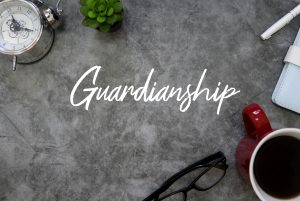 There are many situations where it appears that a Guardian under Article 81 of the Mental Hygiene Law should be appointed. This statute provides for the appointment of a Guardian for Personal Needs and also for Property Management. The essence of these cases is a determination by the Court that the Alleged Incapacitated Person (AIP) is incapacitated. In this regard incapacity is not a medical diagnosis but is really a functional analysis as to a person’s ability to handle activities of daily living. Where someone cannot handle their personal needs or financial matters due to some type of illness or disability and the person fails to appreciate their malady and is at risk of harm, then a Court upon clear and convincing evidence may appoint a Guardian. While Article 81 provides a list of powers to be exercised by a Guardian, the Court can provide the precise powers which may apply in any particular situation.
There are many situations where it appears that a Guardian under Article 81 of the Mental Hygiene Law should be appointed. This statute provides for the appointment of a Guardian for Personal Needs and also for Property Management. The essence of these cases is a determination by the Court that the Alleged Incapacitated Person (AIP) is incapacitated. In this regard incapacity is not a medical diagnosis but is really a functional analysis as to a person’s ability to handle activities of daily living. Where someone cannot handle their personal needs or financial matters due to some type of illness or disability and the person fails to appreciate their malady and is at risk of harm, then a Court upon clear and convincing evidence may appoint a Guardian. While Article 81 provides a list of powers to be exercised by a Guardian, the Court can provide the precise powers which may apply in any particular situation.
A Guardianship case is commenced by the filing of a Petition and a proposed Order to Show Cause in the County where the AIP is located. The Petition will provide all of the information regarding the AIP’s situation, the need for a Guardian and information about the Petitioner. Anyone interested in the welfare of an AIP may file a Petition. The New York Probate Lawyer Blog has published many articles regarding issues concerning Guardianship in New York.
As noted, there are many situations where a Guardianship is needed. A person may suffer a severe illness or accident or may be experiencing difficulties due to cognitive matters such as dementia. I have seen many cases where relatively young individuals are suffering from the onset of mental disorders such as schizophrenia.
The Petition which is filed with the Court also contains information regarding the AIP’s family and other necessary persons who are required to receive notice regarding the filing of the proceeding. In many instances, some of these other persons may desire to oppose or object to Guardianship for numerous reasons. There may be an issue as to whether the AIP is incapacitated. Also, the AIP may have executed Advance Directives such as a Power of Attorney, Health Care Proxy or a revocable or irrevocable trust. In these situations, a Guardianship may not be necessary. Also, an Objectant may assert that the person proposed as Guardian is unfit to serve.
There is a procedure for such Objectants to file with the Court an Answer or Objections and also a Cross-Petition seeking alternate relief. In some Courts this type of paper may be filed without further authorization by the Court. Sometimes, a Court may require that a potential Cross-Petitioner seek approval to file by obtaining a right to intervene. This procedure was utilized in a recent Suffolk County Guardianship case entitled Matter of RS decided by Justice Chris Ann Kelley on August 21, 2025. In this case the Judge allowed various individuals to intervene and file Cross-Petitions. I have filed Cross-Petitions in many Guardianship cases where necessary for my client’s interests.
As can be seen, Guardianship cases can be complex and guidance from an experienced Guardianship Attorney may be essential. I have been representing clients in New York Guardianship cases for over 45 years. Do you have a question regarding Guardianship? Call me now for a free confidential review of your issue. We offer reasonable and flexible fees and personal representation.
New York Trusts and Estate Attorney Jules Martin Haas has helped many clients over the past 40 years resolve issues relating to guardianship and probate and estate settlement throughout New Yor City including the Bronx, Queens, Brooklyn, Manhattan, Nassau and Suffolk County. If you or someone you know has any questions regarding these matters, please contact me at (212) 355-2575 for an initial free consultation.
 New York Probate Lawyer Blog
New York Probate Lawyer Blog

